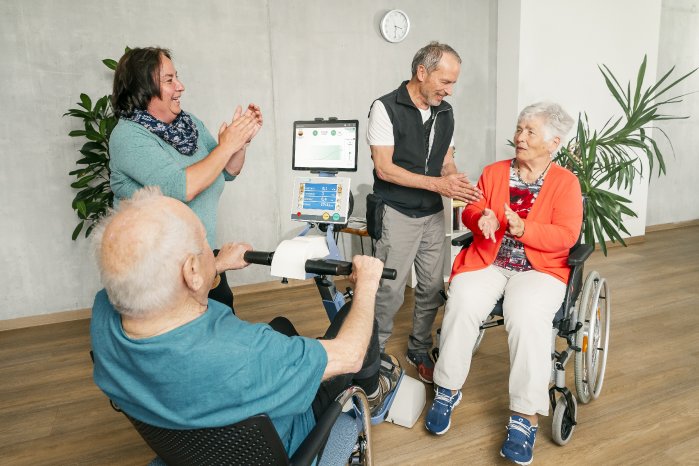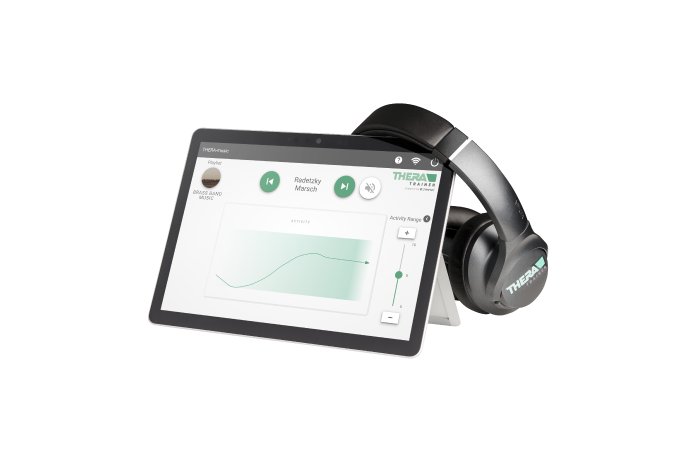THERA-music is pure motivation
Who hasn’t experienced this yet: Your favourite song is playing during a sports session and suddenly the training session flies by. Music has an extreme influence on motivation and perceived exertion. The brand new music biofeedback from THERA-Trainer is based on that effect - but also goes one step further. With THERA-music, users can not only listen to music, they can influence it through their activity. They virtually create their own music during training.
Creating music through your own activity - how does it work?
For patients, using THERA-music is extremely simple. A THERA-Trainer tigo cycle is connected to the THERA-music tablet. The patient selects a playlist (e.g. brass band music), starts the tigo, puts on the headphones and off he goes. First he hears a slow beat, e.g., a tuba. The more actively the patient trains on the tigo, the fuller and more dynamic the music becomes - until at the end the whole band is playing. The effect of more activity can be experienced directly by the patient.
A revolutionary technology
The research into this technology comes from Prof. Dr. Thomas Fritz. At the Max Planck Institute for Human Cognitive and Brain Sciences in Leipzig, Fritz and his team have been working intensively on the effect of music during exercise. This research resulted in the start-up JYMMiN, which took over the further development and marketing of the new technology. In collaboration with the industry leader THERA-Trainer, a first application for the field of neurological and geriatric rehabilitation was developed and is now ready for its market launch. With THERA-music, each music track is specially composed according to specific criteria and modified in such a way that, depending on the user's activity level, the music changes, e.g. more instruments are added or instruments change in such a way that it suits a different activity level. The interaction is controlled by sophisticated algorithms and leads to an experience that inspires. This positively experienced creativity in sports causes a stimulation of cognitive abilities as well as access to additional resources of muscular control. Researchers call this “emotional motor control”.
Music in neurological rehab - an extremely underestimated biofeedback channel.
Therapists know that task-oriented training only leads to success after many repetitions. This is known as the dose-effect principle. The problem is that many older patients in particular are very difficult to motivate or activate due to their particular life situation. A high level of motivation is therefore the key to the success of any therapy. In this case, music is of paramount importance, because music plays such an important role in the lives of many, especially older people. In the playlists of the THERA-music app, as well as generally popular music, special music titles such as folk songs have been compiled for the older generation.
THERA-music inspires first users
The response to the first practical applications has been enthusiastic. Marie Winter, head of a geriatric facility: "THERA-music has been very well received by both our employees and our seniors - the app runs almost non-stop." She adds, "Our seniors no longer talk about a strenuous workout, but about a entertaining music lesson with familiar songs."


